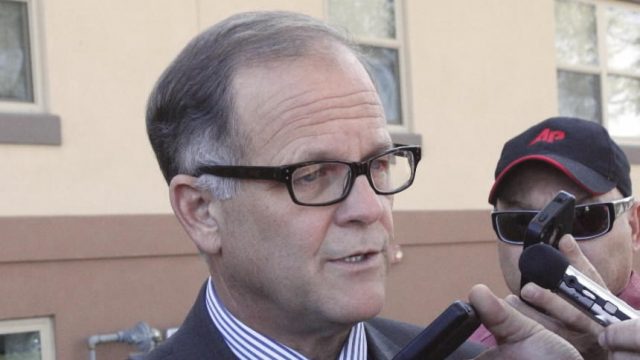Letter From Dean Bresciani Supporter Is Everything That’s Wrong in Higher Education

Kirsten Diederich, a former chairwoman of the State Board of Higher Education and failed Democratic legislative candidate in District 46, has a letter to the editor of the Fargo Forum today in support of embattled NDSU President Dean Bresciani.
In it Diederich puts words to an attitude which encapsulates why people like Bresciani and Diederich have served North Dakota so poorly.
She makes three claims – straw man arguments, really – which are utterly bogus:
- The university system is not really a system at all.
- There are just a “few” lawmakers who are causing problems for the state’s institutions of higher education.
- The Legislature has no business governing the university system.
Let me address these individually, starting with the second claim.
First, there are more than just a “few” lawmakers who see big problems in the university system. If it really were just a few lawmakers, then Diederich wouldn’t have had to withdraw from consideration for a second term on the SBHE when it became clear that the state Senate wouldn’t vote to confirm her. If it were just few lawmakers, majorities in both the House and Senate would not have voted to but a constitutional amendment on the 2014 ballot (Measure 3) to reform the governance structure of the university system. It may be convenient for Diederich and others trying to circle the wagons around Bresciani that the concerns are coming from just a few trouble-making cranks elected to the Legislature, but it’s not true. It’s a contrivance.
Second, the North Dakota University System is, in fact, a system. That’s why we refer to our public universities in discussions and even in the law as the North Dakota University System. People like Bresciani and Diederich feel otherwise. They’ve made that clear with their words and actions as leaders in higher education. In fact, most of Bresciani’s problems stem from a defiant, belligerent attitude toward any policy aimed at promoting a unified system. He has clashed with multiple chancellors, he has clashed with the Legislature, and it all stems from his steadfast opposition to unity.
Third, while the higher education governance structure in North Dakota is set up to supposedly protect it from “politics” – a laughable proposition to anyone familiar with the cut throat politics of academia – the Legislature still controls the purse strings. The Legislature makes appropriations to fund the various institutions and their facilities, and our lawmakers have a duty to ensure that the dollars they appropriate are used for the benefit of students and the state. I guess people like Diederich and Bresciani would like to live in a world where our lawmakers just shovel money at the universities and keep their mouths shut about things like atrociously low graduation rates, but if that’s their attitude they have no business working in the world of public education.
Public institutions – up to and including public universities – are and should be accountable to the public and their representatives. The headline for Diederich’s letter derides “politics” in the governance of the university system, but politics are the means by which we govern in a democracy. What Diederich means with her snide reference to “politics” is really just accountability to the taxpayers. To the extent that Bresciani and Diederich have clashed with lawmakers, the elected representatives of the taxpayers, it’s because they don’t believe they should be accountable to them. Which, again, is why neither is fit to serve in the North Dakota University System.
I’m glad Diederich wrote this letter. It’s a shining example of why the State Board of Higher Education, which will soon be considering whether or not to give Bresciani a new contract, should opt to send him packing.
We need fresh attitudes to move North Dakota’s institutions of higher education forward, not these tired old shibboleths Diederich spouts which have done nothing but sow rancor, discord, and most tragically poor academic outcomes for students.




